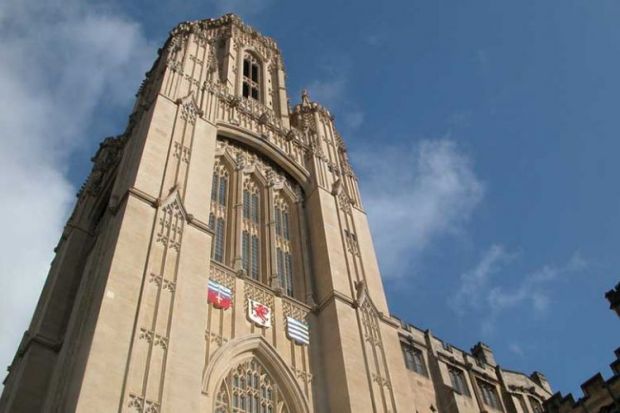The University of Bristol has lost its High Court appeal against a ruling that it contributed to the death of a student by failing to adjust its assessments to account for her social anxiety disorder.
Natasha Abrahart, 20, took her own life on 30 April 2018, the day she was due to give a presentation in a 329-seat lecture theatre as part of a laboratory module for her undergraduate physics degree.
In May 2022, the university was ordered by a judge to pay £50,000 in damages to Natasha’s parents, Robert and Margaret Abrahart, after they successfully argued the institution had breached the Equality Act by failing to make adequate adjustments so their daughter could participate in her course.
Bristol had argued that the “ability to explain laboratory work orally, to defend it and to answer questions on it” was “a core competency of a professional scientist” and took the case to appeal. But, in a 62-page judgment handed down on 14 February, Mr Justice Linden found that the university had failed on all seven of its grounds.
The judge agreed with the original ruling that there were “other ways” of assessing Ms Abrahart’s ability to understand the experiments that did not require face-to-face interaction.
Ms Abrahart, who suffered from anxiety and panic attacks, had been unable to follow the university’s policies and procedures to apply for adjustments and Mr Linden said there was “nothing surprising” in the finding that Bristol “seemed to simply stall” when due process was not followed.
A member of staff at the university had been made aware of Ms Abrahart’s “self-harm and attempted suicide” in the months before she died and the judge said there was “clearly was a need” for that staff member “to draw the attention of key people to the seriousness of Ms Abrahart’s situation, with or without her consent, and for immediate action to be taken to remove the pressure of the forthcoming laboratory interviews and conference from her shoulders”.
Reacting to the ruling, Dr Abrahart, a retired university lecturer, said it had “been a long and painful journey to reach this point, and the University of Bristol has fought us every step of the way”.
“The result is that we now have a judgment from the High Court confirming what we always knew to be true. The University of Bristol failed our daughter, broke the law and contributed to her death,” he said.
“Their arguments that they did not know enough about Natasha’s problems, or that they hadn’t received the right paperwork, or that fairness to other students meant they couldn’t make the adjustments she needed, have now all failed for a second time.
“It is now for the University of Bristol, and higher education institutions across the country, to get their houses in order.”
Gus Silverman, a solicitor at Deighton Pierce Glynn who represented the family, said the ruling “establishes a powerful legal precedent” and was “a reminder that universities cannot shirk their duties to make reasonable adjustments to potentially discriminatory policies on the grounds that a disabled student has not followed a particular bureaucratic process”.
Considering a separate appeal brought by the Abraharts that the university had a “duty of care” to its students – something that was dismissed in the original case – Mr Linden concluded that it was “not necessary” for him to “express any view, one way or the other”.
He said it would not “be wise for me to express a view for various reasons” including that the “issue is one of potentially wide application and significance”.
Speaking outside the court, Mrs Abrahart appealed directly to Evelyn Welch, Bristol’s vice-chancellor, and said: “We don’t need, or want, your sympathy. We want action.
“We want you to read this judgment very carefully and follow its lessons,” Mrs Abrahart added. “We want you to think how you would wish your son or daughter to be treated at university if they were disabled and needed their rights protecting.
“We are still willing to sit down with you. Listen to what we have to say. And finally, at last, five years and nine months after Natasha’s death, say sorry to us. We’re waiting.”
In a statement, Professor Welch said: “Natasha’s death is a tragedy – I am deeply sorry for the Abrahart family’s loss.
“At Bristol, we care profoundly for all our students and their mental health and well-being is a priority and is at the heart of everything we do. We continue to develop and improve our services and safeguards to support our students who need help.
“In appealing, we were seeking clarity for the higher education sector around the application of the Equality Act when staff do not know a student has a disability, or when it has yet to be diagnosed. We will work with colleagues across the sector as we consider the judgment.”
tom.williams@timeshighereducation.com
• If you’re having suicidal thoughts or feel you need to talk to someone, a free helpline is available around the clock in the UK on 116123, or you can email jo@samaritans.org. In the US, the National Suicide Prevention Lifeline is 1-800-273-8255. In Australia, the crisis support service Lifeline is 13 11 14. Other international suicide helplines can be found at www.befrienders.org.




